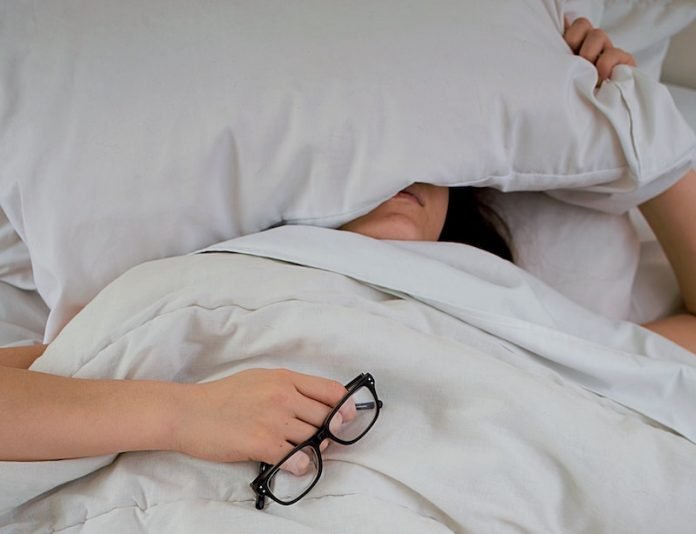
In a new study, researchers found that an irregular sleep schedule can increase a person’s risk of depression over the long term as much as getting fewer hours of sleep overall, or staying up late most nights.
Even when it comes to just their mood the next day, people whose waking time varies from day to day may find themselves in as much of a foul mood as those who stayed up extra late the night before or got up extra early that morning.
The research was conducted by a team at Michigan Medicine.
In the study, the team uses data from direct measurements of the sleep and mood of more than 2,100 early-career physicians over one year.
The interns all experienced the long intense workdays and irregular work schedules that are the hallmark of this time in medical training.
Those factors, changing from day to day, altered their ability to have regular sleep schedules.
The team tracked the interns’ sleep and other activity through commercial devices worn on their wrists and asking them to report their daily mood on a smartphone app and take quarterly tests for signs of depression.
They found that people who had variable sleep schedules were more likely to score higher on depression symptom questionnaires and to have lower daily mood ratings.
Those who regularly stayed up late, or got the fewest hours of sleep, also scored higher on depression symptoms and lower on daily mood.
The findings add to what’s already known about the association between sleep, daily mood and long-term risk of depression.
They highlight sleep consistency as an important factor to target in depression and wellness.
One author of the study is Yu Fang, M.S.E., a research specialist at the Michigan Neuroscience Institute.
The study is published in npj Digital Medicine.
Copyright © 2021 Knowridge Science Report. All rights reserved.



